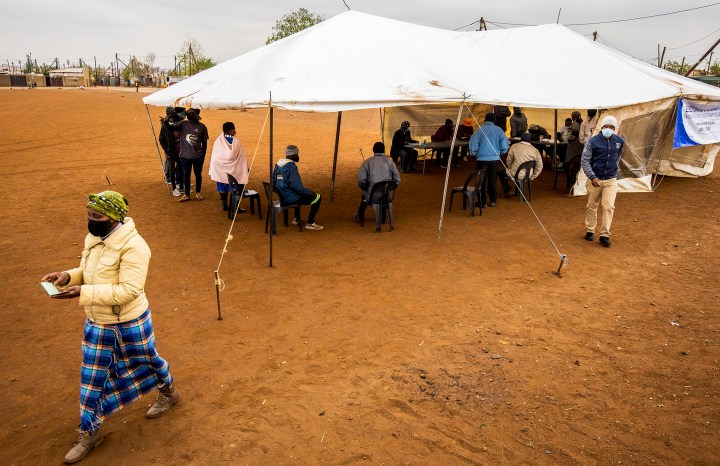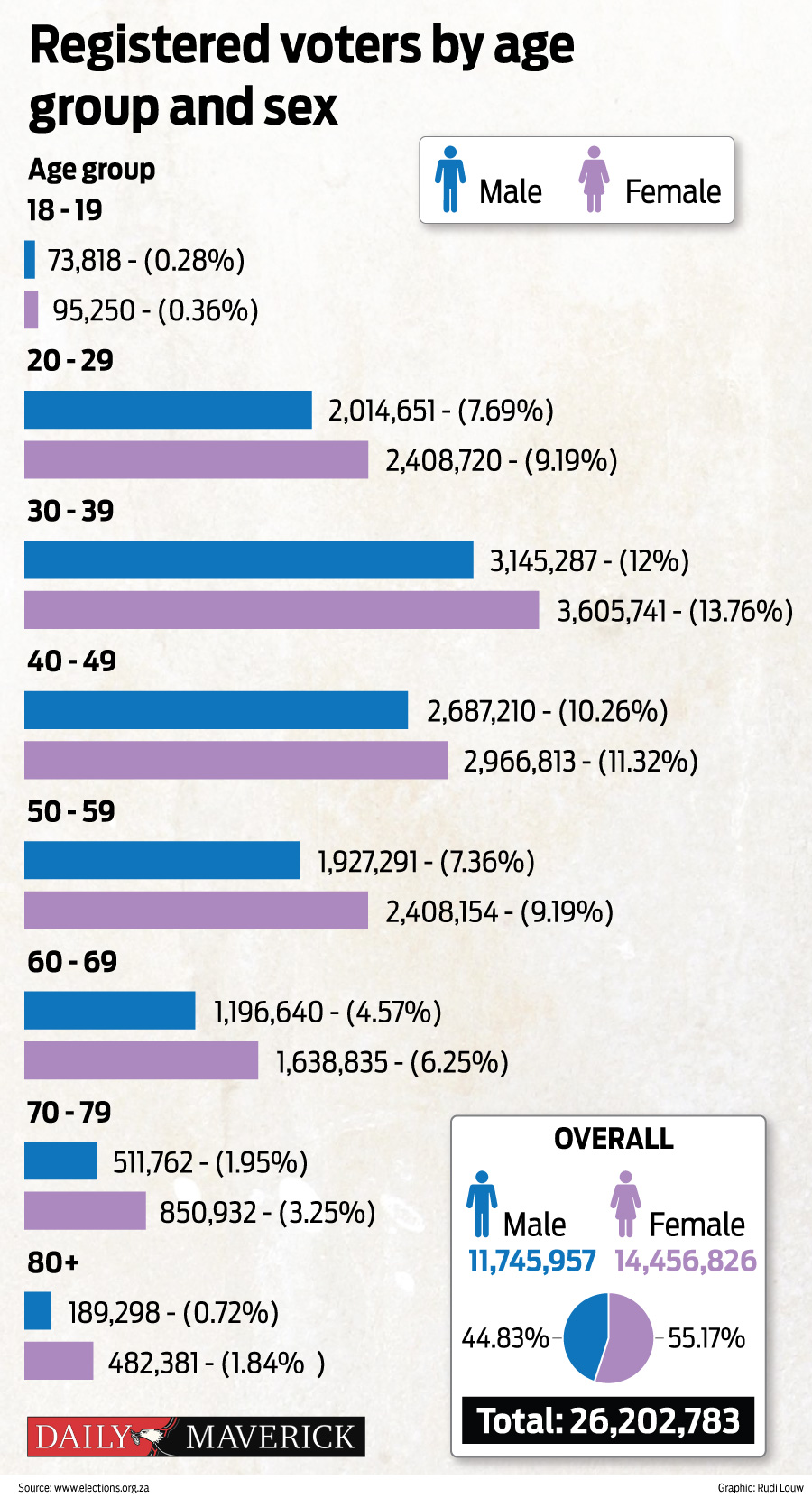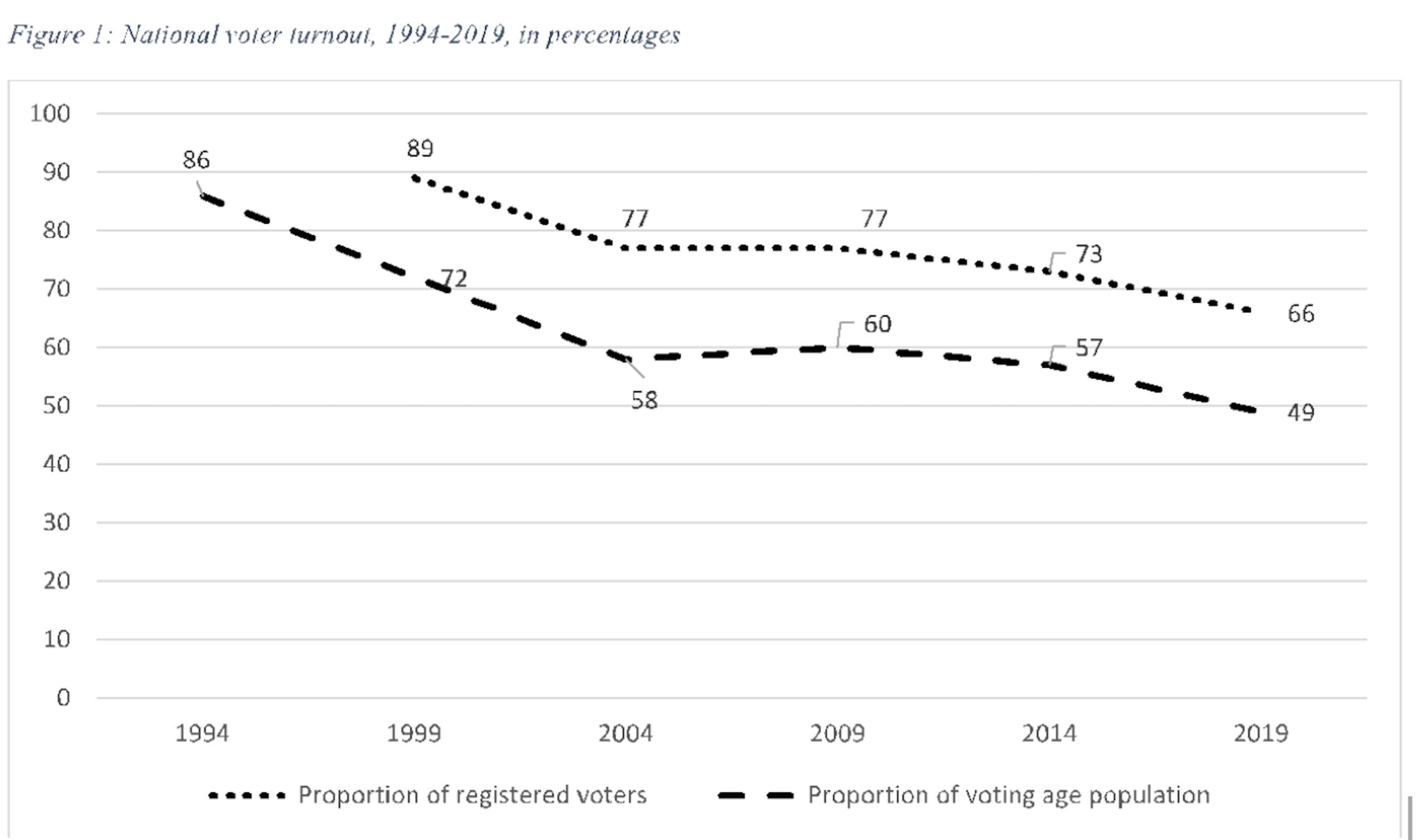Road to 2021 Local Elections
The no-voters: More than 13 million South Africans who can vote haven’t registered for 1 November polls

Faced with local government failures, one in three eligible voters appears to have turned away from electoral politics.
By the midnight cut-off on 20 September, the Electoral Commission of South Africa (IEC) reported that 26.2-million South Africans had registered to vote, with significant registrations by young people at the weekend.
But when compared with the total eligible voting population of just over 40 million, it shows that more than 13 million South Africans who are eligible to vote have not registered and therefore cannot vote because the voters’ roll is now closed. This translates to about one in three eligible voters in fact being no-voters.
The mid-year population estimate by Statistics South Africa published in July 2021 shows South Africa has a population of 60.1 million, with 21.8 million aged between 0 and 19 years.
The high number suggests a few things: that the eligible voting pool was substantially reduced by the uncertainty about whether an election would go ahead. And that people are losing faith in electoral politics to change local government. It can also mean that first-time young voters do not see value in the process.
Local government has largely failed or is failing, according to Auditor-General reports and other public data. In three years as a reform-minded leader, President Cyril Ramaphosa has been unable to entrench significant local government change or governance success.
Local government is closest to people and its failures have seen trust levels plummet.
As indicated in this graphic, the final numbers of registrations reveal that women voters hold the key to the win. Yet not one of the bigger parties in South Africa has a woman leader.


In a paper on the “no-vote” in the 2019 general election, Collette Schulz-Herzenberg found that voter turnout was getting lower in South Africa. It’s a typical pattern in maturing democracies – but is high enough to cause concern, she wrote in a Midpoint paper for the Konrad Adenauer Stiftung.
The chart below shows that the number of eligible voters who register has steadily reduced since 1994 and with a very young population this suggests young people are not being engaged by political parties. The EFF has managed to find a market among young people but not substantially enough to make big gains.

There is a higher registration and voting among older age groups, which is why the IEC focused on young people at the 18-19 September weekend registration campaign – with some success, it said, according to this article. Provinces like Gauteng, KwaZulu-Natal and the Western Cape have more political contestation because they have high metropolitan populations.

“By contrast, the predominantly rural provinces continue to lose active voters due to the decline in the ANC’s rural support base, which manifests in higher abstentions rather than vote shifting to a new political alternative. Provincial variations are also due in part to demographic differentiations (for example, provinces with higher numbers of young people should depress registration and participation levels) as well as specific regional political dynamics which may encourage or suppress turnout,” Schulz-Herzenberg wrote in 2020.
“Non-voters are predominantly found in the middle education categories where people have some or a full secondary school education. Voters are most likely found in the categories of people with very little formal education or with high levels of formal education,” she said. Once registered, people do tend to turn out to vote but at much lower levels for local government elections. In 2000 the turnout was 48% but rose to 58% at the 2016 election when voting patterns caused seismic shifts and scared the ANC into action. The party lost major cities and many municipalities because of corruption. The fact that 14 million people are disengaged from the local government poll suggests diminished trust by citizens in the ability of their vote to change their experience of government.
But Schulz-Herzenberg also found that non-partisans (people who will change their voting affiliations) stood at 13% of voters. Of those, the vast majority (69%) were black South Africans, most of whom are ANC voters. Indian and white voters are found to be more partisan voters which benefits the DA and, of late, the Freedom Front Plus. DM
[hearken id=”daily-maverick/8671″]















 Become an Insider
Become an Insider
The registered voters by Province is informative to a degree but also needed is registered voters by Province per 100,000 population. This is just like covid figures, Gauteng always has the highest numbers but it could be the most apathetic Province.